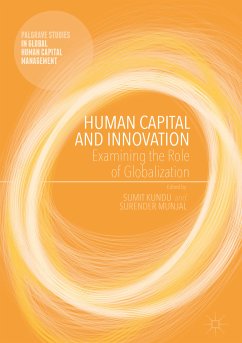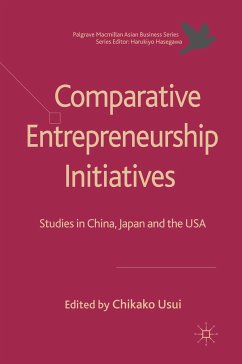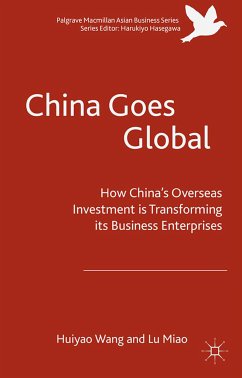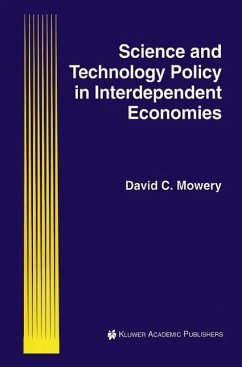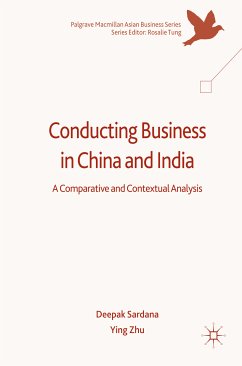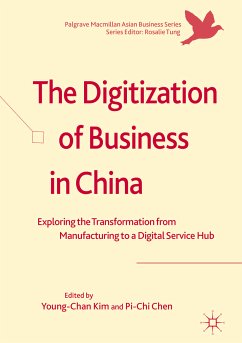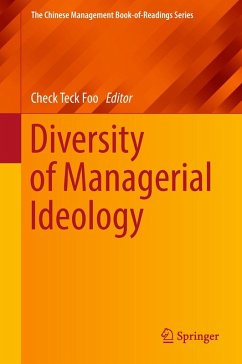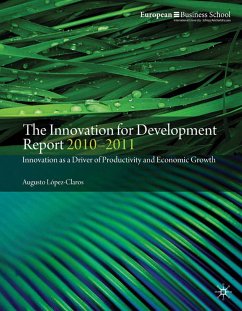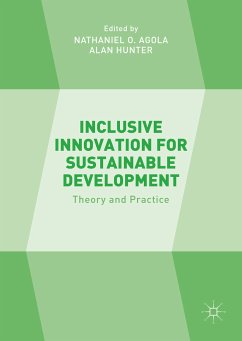
Inclusive Innovation for Sustainable Development (eBook, PDF)
Theory and Practice
Redaktion: Agola, Nathaniel O.; Hunter, Alan
Versandkostenfrei!
Sofort per Download lieferbar
72,95 €
inkl. MwSt.
Weitere Ausgaben:

PAYBACK Punkte
36 °P sammeln!
Employing a three-dimensional approach, this book discusses inclusive innovation for socio-economic growth and development, and the implications for human security within the context of developing and emerging economies. Focusing on a new and innovative area of research, Inclusive Innovation for Sustainable Development explores new social and technological processes that are created within, and for the benefit of, marginalised populations. Considering policy and issues surrounding technology, business strategies and best practices, theoretical underpinnings and a broader contextualisation, the...
Employing a three-dimensional approach, this book discusses inclusive innovation for socio-economic growth and development, and the implications for human security within the context of developing and emerging economies. Focusing on a new and innovative area of research, Inclusive Innovation for Sustainable Development explores new social and technological processes that are created within, and for the benefit of, marginalised populations. Considering policy and issues surrounding technology, business strategies and best practices, theoretical underpinnings and a broader contextualisation, the authors interrogate the concept of the inclusivity of innovations. Written from the perspective of the new UN paradigm which states that "no one will be left behind", the book considers the potential contribution of modern technology to human security and develops frameworks that counter the potential increases in inequality that this may bring. With contributions from leading international scholars in a range of disciplines, as well as practitioners in international development organizations and private sector actors Inclusive Innovation for Sustainable Development provides a way forward for excluded majority populations to take control of innovative technologies and business processes.
Dieser Download kann aus rechtlichen Gründen nur mit Rechnungsadresse in A, B, BG, CY, CZ, D, DK, EW, E, FIN, F, GR, HR, H, IRL, I, LT, L, LR, M, NL, PL, P, R, S, SLO, SK ausgeliefert werden.



